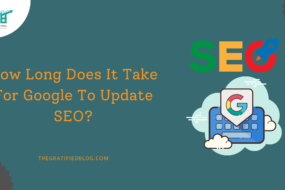
The term “SEO services guaranteed” has become a popular topic in the vast world of SEO. Numerous companies claim to offer guaranteed SEO services; promising business owners improved search engine rankings. But before you leap into such offers, it’s crucial to understand the truth behind this claim.
In this blog post, we will debunk the notion of guaranteed SEO services, shedding light on why it’s a misleading scam. Stay informed and protect yourself from unscrupulous SEO companies by following our insightful guide.
What Do Guaranteed SEO Services Entail?
SEO services are guaranteed to be offered by an SEO company that promises to improve your website’s search engine ranking.
These companies often use black hat techniques, such as keyword stuffing and link buying, to try and improve your ranking. However, these techniques can do more harm than good and result in your website being penalized or even banned from Google.
What Makes This Statement “SEO Services Guaranteed” A Scam?

It’s essential to be cautious of statements that guarantee SEO services, as there is no guarantee for such services. Such statements can be considered a scam.
No matter how much money you spend on an SEO company or how many promises they make, they cannot guarantee that your website will achieve a specific ranking. This is because search engine algorithms are constantly changing, and what may have worked to improve your ranking last year may not work this year.
In addition, your competition is also trying to improve its ranking, so even if an SEO company does manage to get you a higher ranking, it could be short-lived.
Why Should You Avoid Companies That Offer SEO Guarantees?
There are several reasons why you should avoid companies that offer SEO guarantees.
- First, as we mentioned above, there is no such thing as SEO services guaranteed. These companies are simply using unscrupulous methods to try and improve your ranking.
- Second, even if these companies did improve your ranking, it would only be temporary. Once Google realizes that you are using black hat techniques, your website will be penalized or banned.
- Third, these companies often charge a lot of money for their services. You could end up spending thousands of dollars with no results to show for it.
So, avoid companies offering SEO guarantees if you’re looking for SEO services. Instead, look for a reputable SEO company to help you improve your website’s ranking.
Search Engines Warn Against SEO Guarantees
Both Google and Bing have warned against companies offering SEO guarantees.
In 2012, Google’s Matt Cutts wrote a blog post titled “Beware of Guaranteed SEO Services.” He cautioned businesses against working with companies offering guaranteed seo services.
He wrote: “If a company guarantees you the #01 spot in Google for a certain keyword or phrase, that’s a huge red flag that you’re about to be scammed… No one can guarantee a #01 ranking on Google. Beware of SEOs that claim to guarantee rankings.”
Bing’s Duane Forrester has also spoken out against SEO services guaranteed. In a 2014 blog post, he wrote: “I’ve said it before, and I’ll repeat it: beware of anyone promising anything regarding SEO. No one can guarantee rankings or results within search engines.”
Forrester said that SEO services guaranteed are “the biggest scam in the history of marketing.” He advised businesses to “run away” from companies offering such services.
The Truth Behind “Guaranteed SEO Services”

In the competitive world of SEO, the notion of “guaranteed SEO services” is a tempting proposition for many business owners seeking to boost their website’s search engine rankings. However, it is crucial to understand the reality behind such claims to avoid falling victim to deceptive practices. Let’s delve into why guaranteed SEO services are often a scam and how you can safeguard your online presence:
Black-Hat Tactics: Risking Your Website’s Future
- Companies offering guaranteed SEO services may use black-hat techniques like keyword stuffing, cloaking, and link farming.
Keyword Stuffing
Keyword stuffing is an unethical SEO technique where a webpage excessively repeats a particular keyword to manipulate search engine rankings, often resulting in poor user experience and violation of search engine guidelines.
Cloaking
Cloaking involves presenting content or URLs to search engines that differ from what is shown to users, misleading search engines to achieve higher rankings while offering a different experience to website visitors.
Link Farming
Link farming refers to creating or participating in networks of low-quality or irrelevant websites solely to boost a website’s backlink count artificially. This can lead to search engine penalties for engaging in manipulative linking schemes.
- These unethical practices can lead to severe penalties from search engines, including Google, and even result in your website being banned altogether.
- Safeguard your website’s reputation by choosing reputable SEO services that follow ethical guidelines.
One-Size-Fits-All Strategies: Beware Of Unrealistic Promises
- Guaranteed SEO services often promote one-size-fits-all strategies, claiming they work for all websites.
- Each website has unique needs and challenges that require tailored approaches for optimal results.
- Avoid falling for promises that sound too good to be accurate; opt for SEO providers that understand and cater to your website’s requirements.
Unveiling Deceptive Tactics Used By Companies
- Companies offering guaranteed SEO services may deploy several deceptive tactics, such as a money-back guarantee, unrealistic ranking promises, and bait-and-switch tactics using paid search.
- Other warning signs include outsourced SEO services, poor copywriting, dangerous link-building techniques, and low-quality link development.
- Be vigilant and conduct thorough research before selecting an SEO partner.
The Bigger Picture: SEO As Part Of A Holistic Strategy
- While SEO is vital for online success, it’s not the sole factor determining your website’s performance.
- Emphasize creating great content, implementing a user-friendly design, and ensuring easy navigation to enhance user experience.
- A comprehensive approach, combining ethical SEO practices with other essential elements, leads to sustainable success online.
How Should You Choose An SEO Agency?
Now that you know seo services guaranteed are a scam, you may wonder how to choose an SEO agency.
Look for the following when choosing an agency:
- Knowledge And Education
The first thing you should look for is knowledge and education.
Ask the agency about their qualifications and experience. Make sure they stay up-to-date with the latest changes in the SEO industry.
The agency should also be able to provide you with case studies or examples of their work. This will help you see what they’re capable of.
- Transparency And Communication
You should quickly contact the agency, and they should be available to answer any questions.
They should also keep you updated on their progress and provide regular reports. This will help you see how they’re performing.
- Data And Clear Explanations For Decisions
The agency should be able to provide you with data and clear explanations for their decisions.
They should rely on something other than their gut feeling or what they think will work. They should have data to back up their decisions.
You should also be able to understand their explanations. If they’re using technical terms that you need help understanding, they’re not doing an excellent job of communicating with you.
- Customized Strategies
As we mentioned earlier, more than one-size-fits-all SEO strategies are needed.
Look for an agency that will create a customized strategy for your website. This way, you know they’re considering your website’s specific needs.
- Results Tracking And Reporting
The agency should track the results of their work and provide you with regular reports.
This will help you see how they’re performing and whether or not their strategies are working.
You should also be able to access these reports easily. The agency should make it easy for you to see their progress.
- Experience And A Good Reputation
You should make sure the agency has the experience and a good reputation. Check out online reviews and see what other people are saying about them.
- Testimonials And Reviews
When looking for SEO services, check out testimonials and reviews. This will give you a good idea of the quality of their work.
- Case Studies And Portfolios
When looking for SEO services, check out their case studies and portfolios. This will give you a good idea of the quality of their work.
You should also make sure they have experience and a good reputation. You can check online reviews and request referrals from friends or businesses using their services.
- Pricing And Payment Structure
Make sure you understand the pricing and payment structure of the SEO services before hiring them. You want to avoid being surprised by hidden fees later on.
Keep these things in mind when choosing an SEO service, and you’ll be able to find one that can help your business.
SEO Services From Us

Looking for reliable SEO services from an experienced and result-driven SEO agency? TGB is precisely what you are looking for. When you pick us as your SEO agency, we will:
- Understand your business goals
- Perform an SEO audit of your website
- Research relevant keywords
- Optimize your website for the search engines
- Monitor your progress and provide regular reports
If you are ready to improve your website’s ranking in the search engines, contact us today, and let’s get started!
Conclusion
This blog post has helped explain why there is no such thing as guaranteed SEO services. Please contact us if you have any questions or want to learn more about SEO. We would be happy to chat with you and answer any questions.
Thank you for reading!








No Comments